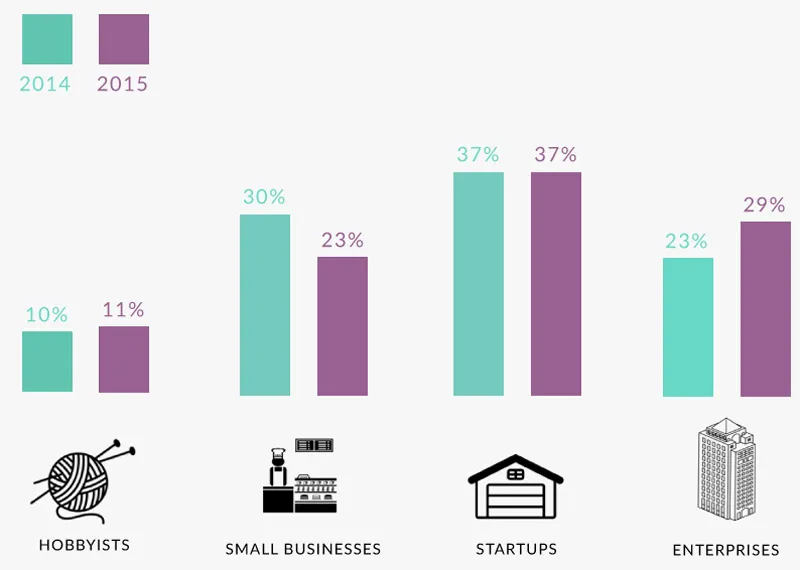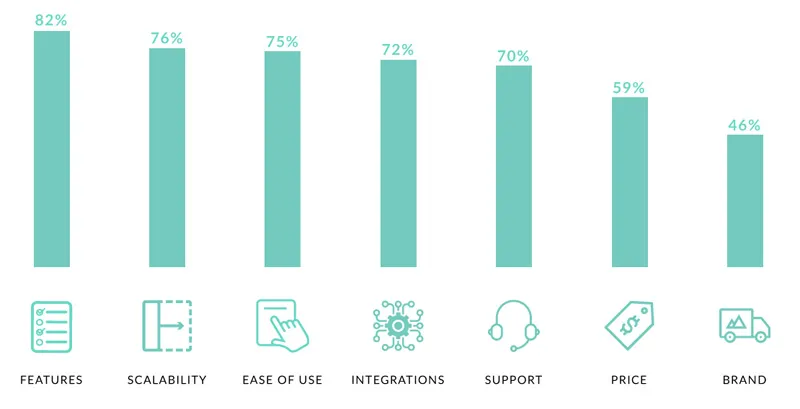The Custom App vs SDK duel is on!
The year 2015 marked the end of the fundamental shift of balance of power for developers.
We are in the midst of two mega-trends and a cycle turn.
First, software development kits (SDKs) are becoming more and more mature and are replacing the need for custom development in mobile. There is still custom development. But like in a car that's becoming more computers, the app is becoming more SDKs and less custom code.Secondly, chat is being touted as the app killer. Conversational commerce is already upon us in Asia. It's only a matter of timebefore the West too wakes up to it. Appas a container will become the browser for chat, which then replaces what we now call as an 'app'.

The euphoria in the startup ecosystem is turning into nervous murmurs on profitability and unit economics. Several hobbyists and small startups/businesses trying to jump into the app bandwagon will wait to see how things unfold or will spend less. As such, an average American downloads zero apps every month!
To add evidence to our observations, a survey of over 500 companies showed us that there is a decline in the small business customer base of app developers, in terms of revenueand per-project value basis. Small businesses are already spending less on custom app development and more on SDKs and white label products. 'Uber for X' dream is still alive.

Meanwhile, after eight years, we could say that enterprises are decisively deploying apps at a large scale, after a couple of years of trial. Mature app development agencies will continue to grow well on the back of such demand. We'll see several mid-market M&A transactions by the way of large system integrators acquiring niche mobile agencies to serve the enterprise demand.
Micro service integration and enterprise problem solving will save agencies
Where does the SDK onslaught leave custom app developers?
Micro-service integration: SDKs are here but someone needs to put them together. Enterprise landscape is even more complex. App development agencies that build specialised capabilities around integration, performance management of apps, security and ops will have a great time in 2016 and 2017.
App development is becoming a commodity but the know-how of running an app business isn't. That's where app developers can build their sustained competitive moat.
Between 70 and 80 percent of enterprises that we surveyed shared their intent to retain an agency for deployment, scaling, and app management. User analytics and app analytics are other areas where demand far outstrips supply of specialist agencies. We said this in early 2015,app development agencies that become full-service app management consulting firms will survive and scale.
Rates are holding up firm, for now
App development rates have been holding up steady, across the world. US and western Europe command the highest per hour rates. Continental and eastern Europe, along with India, command premium low-cost country rates. New supply markets like Indonesia, Vietnam etc., are cheaper bases supplying primarily to the Chinese and Singaporean demand.
One exception to this trend is thatsuper-speciality development agencies that specialise in building SDKs or have very popular apps/games in their portfolio have been able to increase their premium. We saw 10 to 20 percent increase in the top rates. We saw more agencies charging upwards of $175 per hour in the US, $40 per hour in India and $60 per hour in the eastern Europe. These are agencies that started as app developers and have since then become full-service consulting firms.
For a detailed look at pricing across regions for mobile and modern web frameworks, download 'The Makers Speak Report 2016'
Buying behaviour around SDKs hold some surprises
If you blinked, you'd have missed the acquisition of GetApp (a predominantly app and SDK-focussed review site) by Gartner (a predominantly enterprise tech analysis company). That move is an indicator of the turning tide towards SDKs and white labels moving into the enterprise.
Features, scalability, ease of use and integration are the most important criteria when it comes to choosing an SDK. With no clear winners in many categories and an evolving development landscape, decisions on SDKs are made from the perspectives of 'product roadmap' and 'technology' than 'commercials' and 'brand'. The recent shutting down of Parse by Facebook would accentuate the buying community's preference for independent toolmakers with a strong product vision.

To summarise, 2016 will be the year where we'll see decisive shift from apps to newer models of mobile interactions like chat. This will also be a momentous year for SDK and SaaS companies,which will consolidate the ground they won from outsourcing agencies.
Enterprise app development and micro-service integrations may continue to feed the coffers for app development agencies that are in the mid-market space. For the smaller ones that primarily depend on startups, we are past the euphoric times.
If you are interested in the details, you could download the free report (Makers Speak 2016) from ContractIQ.
(Disclaimer: The views and opinions expressed in this article are those of the author and do not necessarily reflect the views of YourStory.)



